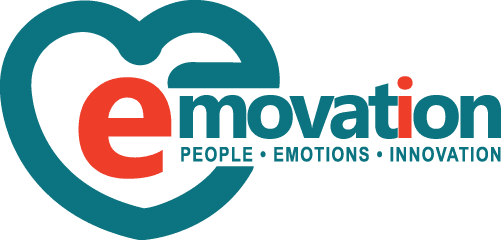The shift to remote work was one of the most significant changes organizations dealt with during the COVID-19 pandemic. As it has subsided, many companies are now implementing return-to-office (RTO) mandates, forcing employees to resume working in physical workspaces.
This significant move, however, is creating another pandemic: The Great Resistance. In fact, a study by Stanford University’s Institute for Economic Policy Research (SIEPR) gathered the following data about this phenomenon:
- Almost 20% of employees that can work from home weren’t coming into the office as many days as their employer requested.
- Organizations pushing for a full five-day return, meanwhile, only have a take-up rate of 48%!
To help you understand more about this occurrence, we’ll dive into how RTO mandates impact employee well-being, then dive into ways you can address them.
What do RTO mandates entail?
Simply put, RTO mandates involve policies that require employees to resume working in their offices, whether it be on a full-time or hybrid basis. Such an initiative, meanwhile, aims to restore traditional workplace dynamics, foster collaboration, and improve productivity.
Although the intention is to improve organizational performance, it’s crucial to consider how such a transition affects employees’ physical and mental health.
Why are employees resisting this transition?
Workers are opposing RTO mandates because they give rise to several challenges:
Loss of flexibility and autonomy
As we mentioned, the COVID-19 pandemic has transformed how people work, primarily because remote setups have allowed them to manage their schedules and environments. They don’t have to regularly look out for overbearing superiors as well.
The return to more rigid structures, however, can feel restrictive and result in lower job satisfaction:
- An astounding 90% of U.S. office workers, for instance, say they’re not keen to return to their old workplaces.
- Nearly 40% of them even say they’d switch employers if another offers flexibility in their work location.
Stressful commutes and traffic
In the Philippine context, the daily commutes and heavy traffic come with financial and physical burdens that add a significant layer of stress. Not to mention, they waste a lot of time as well.
A survey by JobStreet.com Philippines, in fact, revealed that years of lockdowns and quarantines during the COVID-19 pandemic have gotten professionals accustomed to working from home.
As a result, many of today’s workers no longer wish to experience the grueling commutes and traffic conditions, making them prefer more flexible work arrangements. From its 15,178 respondents, JobStreet.com found that:
- 49% of Filipino employees want to work completely remotely five days a week, way beyond the 24% global average
- On the other hand, 48% are open to work via hybrid setups, but it’s still greater than the global average
Remote work opportunities are also becoming plentiful, as Filipino remote employees are now sought after by countries looking for overseas talent, some of which include Canada, Belize, Argentina, and more.
Social anxiety and readjusting to office dynamics
Years of quarantines have given rise to many workers suffering from social anxiety, mainly due to long periods of limited social interaction and enforced isolation.
This issue is more evident in younger members of the workforce, particularly those who entered it during the COVID-19 pandemic. With their work experiences only revolving around online calls and their homes, a sudden return to a physical office could be overwhelming.
Not to mention, these individuals have to reintegrate themselves into office social structures as well, which adds to the stress of meeting colleagues face-to-face for the first time.
Work-life balance
Once employees discovered they could perform well outside the office, they demanded for more flexible work setups, particularly because they help avoid stressful commutes and offer more time for personal commitments.
However, with many workers used to the work-life balance such arrangements provide, reverting to office life disrupts their equilibrium, making it difficult to effectively manage their household responsibilities and personal time.
Being placed in such situations for lengthy periods can easily result in burnout, which not only impacts an employee’s performance, but also your organization’s success. In worse cases, workers experiencing such conditions may simply leave.
How employers can support employee well-being
Seeing the impacts of RTO mandates on employee well-being, it’s crucial that you recognize your role in preventing them. To address the physical and mental tolls of returning to the office, consider these strategies:
Emotionally intelligent leadership
Emotional intelligence (EI) is a leadership skill that lets one better understand their own emotions, as well as that of others. It encompassess key competencies such as empathy and relationship management, both of which allow you to:
- Gauge and acknowledge others’ needs, feelings, and perspectives
- Respond compassionately and comfortably to emotional cues and social situations
- Manage relationships
- Effectively communicate and collaborate
- Resolve workplace conflicts
Emotionally intelligent leaders, meanwhile, are able to place themselves in their employees’ shoes, which lets them formulate appropriate solutions to any fears and anxieties related to RTO. This facilitates the creation of a mentally healthy workplace as well!
Create a supportive and inclusive culture
An environment where employees feel respected, valued, and supported is critical to helping them overcome the stresses of returning to the office. Creating one can result in a more desirable workplace as well. To do so:
Prioritize your workers’ well-being
Obviously, employees can’t be expected to perform well when they don’t have enough time for rest or their personal interests. To help them navigate the stresses of RTO mandates, offer hybrid arrangements, encourage them to take breaks, and invest in their wellness.
Recognition and rewards
Recognition is an extremely effective motivator, as it validates your employees’ efforts. 83.6% of workers, in fact, say it impacts their desire to succeed, while 81.9% of them say that it enhances their engagement.
To establish a culture that inspires employees to come to the office, properly reward their contributions throughout the transition, whether it be through simple tokens, performance bonuses, and the like.
Embrace diversity
Feeling included, regardless of background, is critical to employee engagement and job satisfaction. According to McKinsey, compared to their colleagues, individuals who enjoy this aspect are around 3x more likely to be committed to and excited by their companies.
Since diversity and inclusion allow solutions to be built on unique perspectives, they enhance collaboration and decision-making as well. Through 2022, Gartner even projected 75% of organizations with diverse and inclusive decision-making teams to exceed their financial targets.
Destigmatize mental health struggles
According to a 2022 poll by the American Psychiatric Association (APA), the stigma on mental health is still a major challenge in the workplace, with only 48% of workers saying they can discuss mental health openly and honestly with their supervisor.
Just 52%, meanwhile, say they’re comfortable using mental health services with their current employer.
To help your employees overcome any stereotypes and prejudices, create an open dialogue around mental health issues and spread awareness across your organization.
They should be able to work in an environment where they can share their problems and use resources without fear of judgment.
Provide mental health resources and support systems
Cultivating workplace wellness is critical, as 57% of employees and 69% of executives will seriously consider leaving their organizations for another that supports their well-being better.
To ensure your personnel can overcome the struggles of readjusting to a physical workplace, offer mental health resources such as counseling services, wellness programs, and mental health days.
Employers recognize their value as well, as the International Foundation of Employee Benefit Plans (IFEBP) found that many employers in the United States (US) and Canada try to make mental health services (86%) and mental health mobile apps (41%) accessible.
Wrapping up—Prioritize employee well-being while enacting RTO mandates
As you navigate the effects of RTO mandates on your workers, it’s vital that you prioritize their wellness. By understanding the physical and mental tolls associated with their transition to physical workplaces, you can execute measures that cultivate a more supportive environment.
Emovation’s ElevateMinds programs can help in that regard, as they’re built on the belief that one’s physical, emotional, and spiritual dimensions are intertwined—all of which are elements that contribute to mental wellness. Our mental health services, meanwhile, include:
- Mental Health Policy Development Assistance
- Mental Wellness Compass Assessment
- EmoWell Spectrum Report
- Comprehensive Psychological Evaluation
- Psychoeducation and Mental Health Training Services
- And more
Remember, your organization’s success hinges not only on its operations, but also your workforce’s health and happiness. To learn how we can help you embrace a more holistic approach to employee well-being, simply get in touch!






Leave A Comment